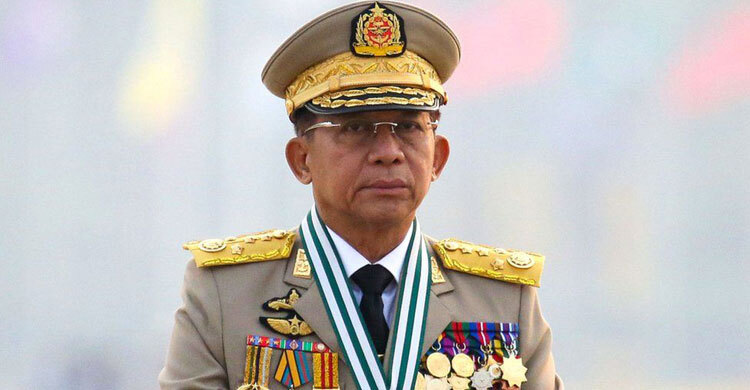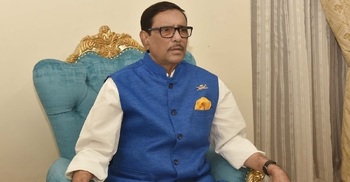Myanmar army chief set to make first foreign trip since coup

The head of the Myanmar military is set to meet international leaders, in what will be his first known foreign trip since the army took power in a coup, reports BBC.
General Min Aung Hlaing is scheduled to attend an Asean regional summit in the Indonesian capital Jakarta on Saturday.
The military seized power on 1 February, claiming there had been voter fraud in the 2020 general election.
Since then, more than 700 people have been killed as many protested against the military government.
The talks in the Indonesian capital will be the first international effort to address the crisis and they will see leaders and foreign ministers from the 10-member Association of South East Asian Nations (Asean) attend.
It is widely expected that Min Aung Hlaing will attend the summit in person - though this has not been confirmed.
Thailand's prime minister as well as the president of the Philippines have said they would only send their foreign ministers.
The bloc's other members include Malaysia, Singapore, Vietnam, Brunei, Cambodia, host Indonesia and Myanmar itself.
There have been calls for Myanmar, also known as Burma, to be expelled from Asean but the members historically do not get involved in each other's internal affairs.
The United Nation's Secretary-General Antonio Guterres has called for the Asean summit to resolve the crisis and prevent "possible grave humanitarian implications beyond Myanmar's borders," UN spokesman Stephane Dujarric said.
The UN special envoy for Myanmar, Christine Schraner Burgener, will be in Jakarta for meetings on the sidelines of the summit.
Mass protests have been taking place across Myanmar since the military seized control and declared a year-long state of emergency.
The armed forces claim there had been widespread fraud during a general election late last year which had returned elected leader Aung San Suu Kyi and her National League for Democracy party (NLD) to power.
The military promised instead that it would hold "free and fair" elections once the state of emergency is over.
In the past few weeks, the military has been increasing its use of force against protesters - with one incident earlier this month in the city of Bago seeing more than 80 people killed.
Witnesses told local media that soldiers had used heavy weapons and had shot at anything that moved.







